How to Meditate for Achieving Emotional Stability sets the stage for this enthralling narrative, offering readers a glimpse into a story that is rich in detail with practical worship guide style and brimming with originality from the outset.
Meditation is a powerful tool for achieving emotional stability in today’s fast-paced world. By exploring the benefits, techniques, and tips for incorporating meditation into daily life, individuals can enhance their overall well-being and emotional balance.
Introduction to Meditation for Emotional Stability: How To Meditate For Achieving Emotional Stability
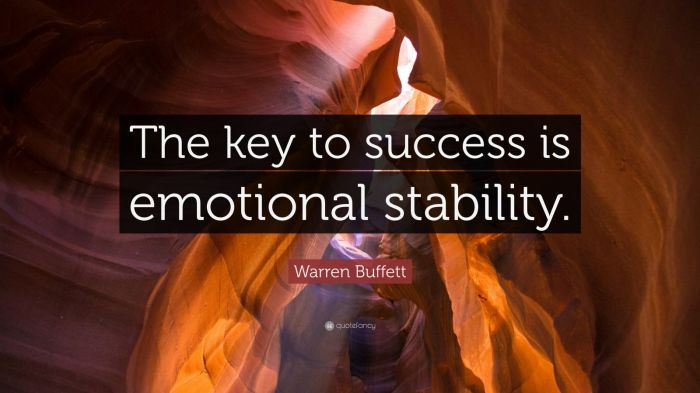
Meditation is a practice that involves focusing your mind and eliminating the chaotic thoughts that may be causing stress or anxiety. It allows you to be present in the moment and cultivate a sense of inner peace and calmness.Emotional stability is crucial for navigating the ups and downs of daily life. It helps you maintain a sense of balance and resilience in the face of challenges, allowing you to respond to situations with clarity and composure.
Learn How to Meditate for Manifesting Your Desires to attract positive energy and align your thoughts with your goals. Visualization and positive affirmations are key components of this meditation practice, helping you manifest your deepest desires and aspirations.
Benefits of Meditation for Achieving Emotional Stability
- Meditation helps reduce stress and anxiety levels by calming the mind and promoting relaxation.
- It enhances self-awareness, allowing you to recognize and understand your emotions better.
- Regular meditation practice can improve emotional regulation, helping you manage intense feelings more effectively.
- It promotes a sense of mindfulness, enabling you to stay present and focused on the present moment.
- By cultivating a peaceful state of mind, meditation can lead to increased emotional resilience and inner strength.
Understanding Emotional Stability
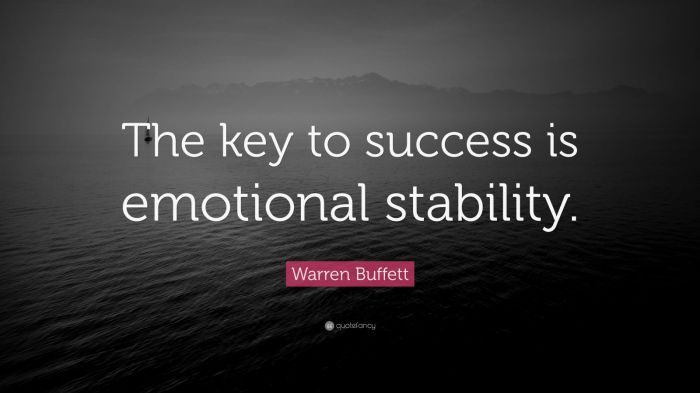
Emotional stability refers to the ability to maintain a balanced emotional state despite external circumstances. It involves being able to manage and regulate your emotions effectively, leading to a sense of inner calm and resilience in the face of challenges.
Signs of Emotional Instability
- Constant mood swings
- Difficulty coping with stress
- Intense reactions to minor events
- Feeling overwhelmed by emotions
Importance of Emotional Stability for Well-being
Emotional stability plays a crucial role in overall well-being as it impacts various aspects of life, including relationships, work performance, and physical health. When you are emotionally stable, you are better equipped to handle stress, communicate effectively, and make rational decisions.
Discover 10 Mindfulness Meditation Techniques for a Peaceful Mind that can help calm your thoughts and bring peace to your mind. By practicing these techniques regularly, you can improve your focus and reduce stress levels, leading to a more balanced and harmonious life.
Techniques for Meditating to Achieve Emotional Stability
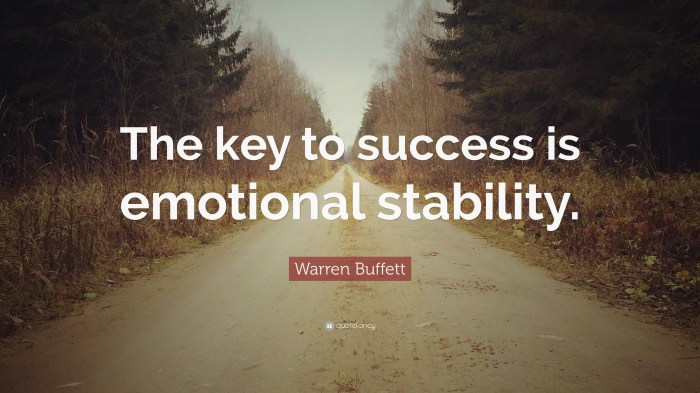
In order to achieve emotional stability through meditation, it is important to explore different techniques that can help calm the mind and regulate emotions effectively.
Explore How to Meditate for Greater Inner Strength to cultivate resilience and inner power. Through meditation, you can connect with your inner self, build emotional stability, and develop a strong sense of self-confidence that will guide you through life’s challenges.
Mindfulness Meditation, How to Meditate for Achieving Emotional Stability
- Focus on the present moment without judgment.
- Pay attention to your thoughts, feelings, and sensations.
- Practice deep breathing and body scan techniques.
- Acknowledge and accept your emotions without reacting impulsively.
Loving-Kindness Meditation
- Cultivate feelings of compassion and kindness towards yourself and others.
- Repeat phrases of loving-kindness to promote positive emotions.
- Visualize sending love and goodwill to those in need.
Body Scan Meditation
- Scan your body from head to toe, focusing on each body part.
- Release tension and stress by bringing awareness to different areas of the body.
- Connect with physical sensations and let go of any negative emotions stored in the body.
Tips for Incorporating Meditation into Daily Routine
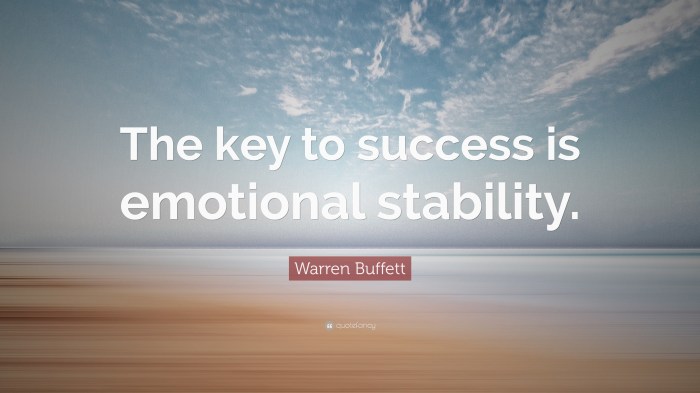
Incorporating meditation into your daily routine can be challenging, especially with a busy schedule. However, with the right strategies and mindset, you can make it a consistent practice that brings emotional stability and peace to your life.
Ideal Time and Place for Meditation
Finding the ideal time and place for meditation is crucial to ensure consistency and effectiveness in your practice. Here are some tips to help you establish a routine:
- Create a dedicated meditation space in your home where you feel comfortable and relaxed. It could be a quiet corner, a cozy chair, or even a cushion on the floor.
- Choose a time of day when you are least likely to be disturbed, such as early morning before the day gets busy or in the evening before bedtime.
- Experiment with different times and places to find what works best for you. Consistency is key, so stick to a schedule that you can maintain.
Overcoming Common Obstacles
Starting a meditation practice may come with its challenges, but with persistence and patience, you can overcome them. Here are some common obstacles you may face and how to tackle them:
- Restlessness and Distractions: If your mind wanders during meditation, gently bring your focus back to your breath or a mantra. Practice self-compassion and acknowledge that distractions are normal.
- Lack of Time: Remember that even a few minutes of meditation can make a difference. Start with short sessions and gradually increase the duration as you build consistency.
- Resistance to Change: Embrace meditation as a tool for emotional stability and stress relief. Recognize the benefits it brings and prioritize self-care in your daily routine.
Benefits of Meditation on Emotional Stability
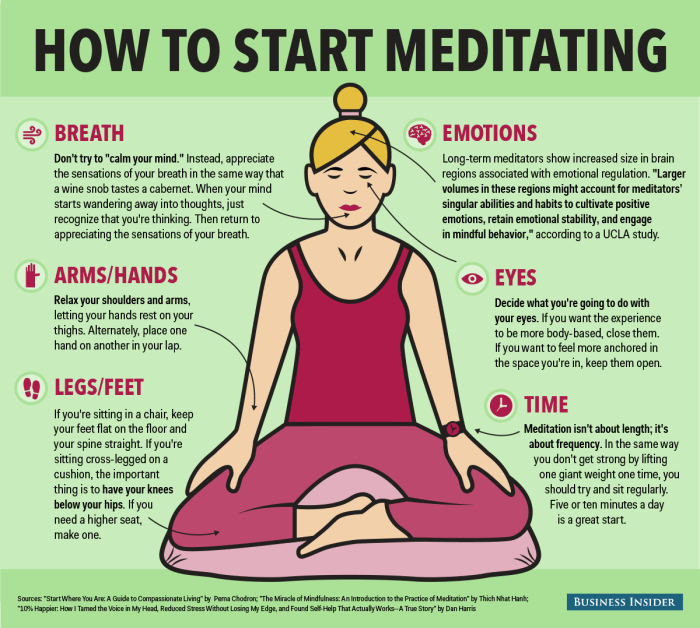
Meditation has numerous benefits when it comes to achieving emotional stability. Let’s delve into some of the key advantages that regular meditation practice can offer in this regard.
Positive Impact Supported by Scientific Studies
- MRI studies have shown that meditation can lead to structural changes in the brain, particularly in areas associated with emotion regulation.
- A study published in the journal Psychological Science found that mindfulness meditation can reduce stress and improve emotional well-being.
- Research from Harvard Medical School suggests that meditation can help decrease activity in the amygdala, the brain’s center for fear and stress, leading to greater emotional control.
Personal Testimonials on Emotional Balance
- Many individuals have shared how meditation has helped them manage their emotions better, leading to a more stable and positive outlook on life.
- Personal stories often highlight the calming effect of meditation, allowing individuals to respond to challenging situations with clarity and composure.
- Testimonials frequently mention reduced anxiety, improved mood, and enhanced overall emotional resilience through regular meditation practice.
Long-Term Effects on Emotional Well-Being
- Consistent meditation practice can help individuals build emotional resilience over time, making them less reactive to stressors and more adaptable to change.
- Long-term meditators often report a greater sense of inner peace, increased empathy towards others, and a heightened ability to navigate complex emotions with ease.
- Studies have shown that regular meditation can lead to lasting changes in brain function, promoting emotional stability and well-being in the long run.
Embrace the journey of meditation for emotional stability and witness the transformative effects it can have on your life. By dedicating time to practice meditation regularly, you pave the way for a more balanced and emotionally stable existence.